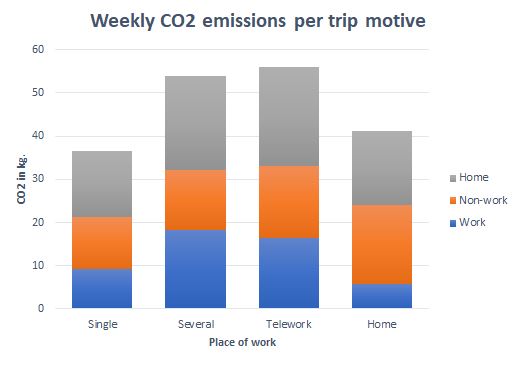When new lifestyles disrupt daily mobility in England
By exploring data relating to England from the UK National Travel Survey between 2002 and 2017, this research led by Benjamin Motte-Baumvol was able to refine the analysis of daily mobility usually carried out in France (where surveys are based on one “typical day”) by considering the variability of travel over a whole week, which reflects our increasingly fragmented lives more authentically.
Thanks to new “remote” practices enabled by the development of telework and online shopping, we can perform our activities in a greater variety of locations and many trips that were previously necessary are now avoidable. But the organization of our everyday life is becoming more complex and these trends are seemingly leading us to perform more and more carbon-emitting trips.
The purpose of this research is to understand how current evolutions in the lifestyles and working conditions of workers are causing adaptations in daily travel and its coordination within the household. Three dimensions of people’s lifestyles were studied: the influence of the workplace and of teleworking on travel, the effects of online shopping, and finally the determinants of taking children to their activities among dual-income families. The analysis of quantitative data allows us to describe these practices, to understand whether there are interactions between these different activities and see if they make it possible, as one might think regarding digital tools, to reduce travel and associated CO2 emissions.

